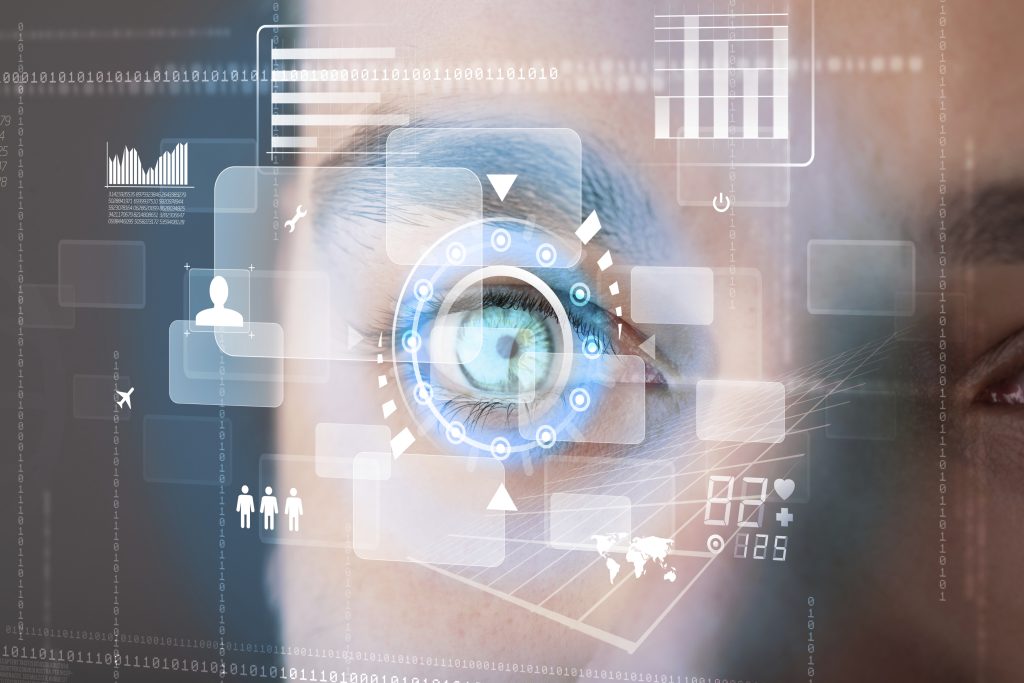eCommerce AI | Web Apps | AR/VR Software – ECA Tech
- Home
- Digital Immortality: 9 Best Things to Know
Digital Immortality: 9 Best Things to Know

October 11, 2024 - Technology
The concept of digital immortality—the idea that humans could one day preserve their consciousness, memories, or personality digitally—has been the subject of science fiction for decades. With rapid advancements in artificial intelligence, neuroscience, and digital technologies, the idea of living forever through digital means is gradually moving from the realm of imagination into a future possibility.
While it may still be years or even decades away from becoming a practical reality, digital immortality is a fascinating topic, blending elements of philosophy, science, and ethics. In this comprehensive guide, we will explore nine essential things to know about digital immortality, its potential benefits, challenges, and implications for society.
- Memories
- Personality
- Thoughts
- Cognitive Patterns
1. What Is Digital Immortality?
At its core, digital immortality refers to the concept of using advanced technologies to create a digital version of a person that can continue to exist after their biological body has ceased to function. The aim is to achieve a form of “immortality” by storing a person’s memories, personality, and cognitive patterns in digital form. In theory, this digital representation could continue to interact with the physical world and other people, either through AI or virtual reality environments.
The approach to digital immortality varies, with some ideas focusing on mind uploading (where one’s brain is digitally scanned and uploaded into a computer) and others revolving around the creation of virtual avatars that mimic a person’s behavior and thoughts based on their digital footprints (social media, emails, texts, etc.). Companies like Eterni.me and Replika are already exploring aspects of this by developing chatbots that simulate a user’s personality.
Ultimately, digital immortality seeks to answer humanity’s age-old quest for eternal life, but instead of relying on the preservation of the physical body, it places emphasis on the continuation of consciousness in a digital medium.
2. Mind Uploading: The Path to Digital Immortality
Mind uploading is one of the most popular ideas associated with digital immortality. The concept is simple but ambitious: to scan a person’s brain and copy its neural structure into a digital format. In theory, this could involve creating an exact digital replica of the person’s brain, down to individual neurons and synaptic connections. This digital brain could then run on a powerful supercomputer, effectively preserving the person’s consciousness.
There are two primary approaches to mind uploading:
- Whole Brain Emulation: This would require creating a full-scale digital copy of every neuron in the brain, a task that is currently far beyond our technological capabilities. It would involve scanning the brain at a high enough resolution to capture all the intricate details of neural activity.
- Simulated Consciousness: Some theorists propose that digital immortality could be achieved by simulating the key aspects of a person’s consciousness, personality, and decision-making processes, without the need to replicate the entire brain. This could be done using machine learning algorithms trained on vast amounts of personal data.
While mind uploading is still in its infancy, the rapid advancement of neuroscience and AI brings this possibility closer. However, significant ethical, technical, and philosophical questions remain, such as whether a digital copy of a brain truly represents the “self” and whether such a process would result in the continuation of individual consciousness.
3. The Role of AI in Digital Immortality
Artificial intelligence plays a critical role in the realization of digital immortality. At present, AI algorithms are capable of mimicking human behavior and generating responses that simulate real conversations. By analyzing an individual’s digital footprint—social media interactions, emails, photos, and even biometric data—AI can create a digital persona that behaves similarly to the original person.
AI-driven digital avatars could serve as an interface for digital immortality. These avatars could communicate with others, share memories, and even evolve over time based on interactions and new data inputs. For instance, someone could “live on” as a virtual AI-powered entity in a virtual reality world, where friends and family could continue to interact with them.
Natural language processing (NLP), a branch of AI, is especially important for developing realistic digital personas. It enables AI to process and understand human language, thereby creating more lifelike conversations. With advancements in GPT models (like the one generating this article), it’s becoming easier to simulate human-like interactions.
The use of AI in digital immortality raises important questions: How do we define authenticity in human interactions? What are the emotional consequences for loved ones interacting with a digital version of a deceased person? AI will undoubtedly continue to shape how we think about, develop, and experience digital immortality.
4. Preserving Consciousness Through Memory Uploads
One potential pathway to digital immortality involves the preservation of human consciousness through memory uploads. While preserving the full scope of consciousness (including emotions, creativity, and decision-making) may be difficult to achieve, some believe that we can start by preserving key memories and experiences digitally.
Current technologies, such as brain-computer interfaces (BCIs), are already exploring ways to interface the human brain with machines. These devices, which can record neural signals, may one day enable us to upload and store memories externally. Projects like Neuralink, led by Elon Musk, aim to develop advanced BCIs that could facilitate this type of memory recording and storage.
The idea is that, in the future, humans could store their entire life experiences in a digital format, accessible to future generations. These “memory banks” would form the foundation of a digital afterlife, allowing people to revisit and share the memories of those who have passed on. However, preserving memory is only one piece of the puzzle—creating a coherent digital self that can utilize these memories presents a much bigger challenge.
5. Digital Immortality and Virtual Reality
Virtual reality (VR) plays an intriguing role in digital immortality, offering a space where digital versions of people could exist and interact. Imagine visiting a virtual world where you can converse with a lifelike, AI-driven avatar of a deceased loved one. In this digital space, the boundaries of the physical world no longer apply, enabling new forms of connection and experience.
Virtual reality could become the “home” for digital immortality, where individuals continue to exist in simulated environments. This might involve interacting with avatars, reliving past events, or creating entirely new digital lives in virtual worlds.
One vision for VR and digital immortality is the creation of fully immersive environments where a person’s consciousness or digital replica can “live.” These environments could simulate real-world settings, futuristic landscapes, or even personalized utopias based on the individual’s preferences. People could visit these digital worlds to interact with the immortalized digital personas of loved ones or even to upload their own minds in the future.
In addition to social interaction, these virtual environments could provide opportunities for continued learning, work, and leisure activities, making digital immortality a fully immersive and continuous experience.
6. Ethical Considerations of Digital Immortality
While the technological aspects of digital immortality are fascinating, there are significant ethical considerations to address. Some of the key ethical questions surrounding digital immortality include:
Is a digital replica truly “alive”? If we successfully create a digital version of a person, does that digital entity have rights? Is it merely a reflection of the individual, or does it possess some form of consciousness or sentience? Philosophers and ethicists have long debated what it means to be “alive” or “conscious,” and these questions will become even more pressing as we develop the technologies for digital immortality.
Ownership and privacy of data: A person’s digital footprint—social media, photos, emails, and other personal data—would play a crucial role in constructing a digital persona. Who owns this data after the person’s death, and how should it be protected? Will the deceased have the right to control their digital self, or will this fall into the hands of corporations?
Emotional impact on loved ones: Engaging with digital avatars of deceased individuals may provide comfort to some, but it could also complicate the grieving process. Prolonging contact with a digital replica may prevent closure, or lead to confusion between reality and virtual interactions.
Digital immortality for the wealthy: There is a concern that digital immortality could become a privilege for the wealthy, creating a future where only the rich can afford to “live forever” digitally. This could exacerbate existing inequalities and create a digital divide in society.
These ethical challenges highlight the need for careful consideration and regulation as we move closer to realizing the potential of digital immortality.
7. Digital Immortality and Legacy
One of the more practical benefits of digital immortality is the preservation of an individual’s legacy. Through digital technologies, people can ensure that their life’s work, ideas, and values continue to influence future generations. A digital version of a person could serve as a repository of knowledge and experience, offering guidance or insight even after the person’s biological death.
Imagine having a conversation with a digital version of a great historical figure, a famous scientist, or an influential leader, where their thoughts, beliefs, and responses are generated based on their writings, speeches, and public persona. This could create opportunities for future generations to learn from the past in ways that go beyond textbooks or documentaries.
Moreover, digital immortality could provide individuals with a platform to preserve their artistic, intellectual, and creative endeavors. A writer could continue to “write” through an AI-driven avatar, or an artist could have their style replicated and applied to future works of art, ensuring that their creative legacy lives on.
8. Digital Immortality and Technological Limitations
Despite its promising potential, digital immortality faces significant technological hurdles that must be overcome before it becomes a reality. Some of the major technical challenges include:
Brain mapping and replication: Creating a full-scale digital copy of a human brain would require technologies that can scan and replicate the brain at an unprecedented level of detail. Current brain scanning technologies, like MRI, are far from being able to capture the neural complexity required for mind uploading.
Computational power: Running a digital copy of a human brain, especially in real-time, would require massive amounts of computational power. While supercomputers are becoming more powerful, we are still far from having the processing capacity needed for whole brain emulation.
Data storage: Storing a digital copy of a human brain and personality would require enormous amounts of data storage, far beyond what current storage solutions can handle. As we move toward exascale computing, new innovations in data storage will be necessary to support digital immortality.
While we are making progress in areas like AI and neuroscience, it may still take decades, if not centuries, to overcome these technical limitations. For now, digital immortality remains largely theoretical, though the pace of innovation suggests that the possibility may one day become a reality.
9. Future Implications and Societal Changes
As we move closer to the possibility of digital immortality, it’s essential to consider how this technology could reshape society. The ability to create digital replicas of people may lead to fundamental changes in how we view life, death, identity, and relationships.
Redefining life and death: Digital immortality challenges traditional concepts of life and death. If a person’s consciousness or personality can continue to exist digitally, does that mean they are still “alive”? How will society redefine what it means to die, and how will the grieving process change?
Social and familial relationships: Interactions with digital versions of loved ones could alter how we relate to the deceased and impact our emotional well-being. Future generations may grow up interacting with digital avatars of their ancestors, changing the way we connect across generations.
Cultural and religious implications: Different cultures and religions have varying beliefs about life, death, and the afterlife. The development of digital immortality may provoke theological debates and challenge spiritual perspectives on the soul, reincarnation, and the meaning of existence.
As digital immortality technology advances, society will need to grapple with these profound changes, navigating new norms, regulations, and moral questions.

Potential pathways.
Digital immortality represents one of the most intriguing possibilities of the future, blending cutting-edge technology with philosophical questions that have been central to human existence for millennia. From mind uploading to AI-powered digital avatars, the potential pathways to digital immortality are varied and complex. However, with these opportunities come significant ethical, technological, and societal challenges that must be addressed.
While we are still far from achieving true digital immortality, advancements in AI, virtual reality, and neuroscience bring us closer to a future where humans can live on digitally, even after their biological bodies have ceased to function. As we explore this brave new world, it’s important to remain mindful of the implications and ensure that the benefits of digital immortality are shared equitably across society.
By clicking Learn More, you’re confirming that you agree with our Terms and Conditions.

digital immortality FAQ
1. What is digital immortality?
Digital immortality refers to the concept of preserving a person’s consciousness, identity, or memories in a digital form after their physical death. This involves creating a digital representation of a person’s mind, often using advanced technologies such as artificial intelligence, neuroscience, and computer science. Proponents of digital immortality believe that it may be possible to upload a person’s consciousness into a computer or a simulated reality, allowing them to continue to exist and interact with the world in a digital form.
2. Is digital immortality scientifically possible?
The scientific feasibility of digital immortality is a subject of ongoing debate and research. While some experts believe that it may be possible to create a digital representation of a person’s mind, there are significant challenges to overcome. One of the main challenges is understanding the nature of consciousness and how it can be digitized. Additionally, there are technical limitations related to the storage and processing of vast amounts of data required to represent a human mind.
3. What are the potential benefits of digital immortality?
Proponents of digital immortality argue that it could offer several benefits, including:
- Eternal Life: Digital immortality could provide a way to overcome the limitations of human mortality and achieve a form of eternal life.
- Preservation of Identity: It could allow individuals to preserve their identity, memories, and consciousness beyond their physical death.
- Continued Relationships: Digital immortality could enable people to maintain relationships with loved ones who have passed away.
- Exploration of New Experiences: It could open up new possibilities for exploration and experiences in digital worlds.
4. What are the ethical concerns associated with digital immortality?
Digital immortality raises several ethical concerns, including:
- Identity and Consciousness: There are questions about whether a digital representation of a person’s mind would truly be the same as their original consciousness.
- Privacy and Security: The storage and protection of personal data associated with digital immortality raise privacy and security concerns.
- Social Implications: Digital immortality could have significant social and cultural implications, such as affecting concepts of death, afterlife, and human identity.
- Economic Inequality: Access to digital immortality may be limited to those with the resources to afford it, leading to further economic inequality.
5. How is research progressing in the field of digital immortality?
Research in the field of digital immortality is ongoing, with advancements being made in areas such as neuroscience, artificial intelligence, and computer science. Scientists are studying the brain and its functions, developing techniques to map and simulate neural networks, and exploring the potential of artificial intelligence to create conscious entities. However, significant challenges remain, and it is unclear whether digital immortality will ever become a reality.
6. What are the potential risks and limitations of digital immortality?
Even if digital immortality were to become possible, it is likely to have limitations and risks. Some potential risks include:
- Technical Challenges: There may be technical difficulties in creating and maintaining a digital representation of a person’s mind.
- Ethical Concerns: Addressing the ethical concerns associated with digital immortality will be crucial.
- Social Implications: The social and cultural implications of digital immortality may be significant and difficult to predict.
- Limited Experiences: A digital existence may not provide the same richness of experiences as a physical one.
- Dependence on Technology: Digital immortality would involve a dependence on technology, which could be vulnerable to failures or attacks.
